Posted on 8/24/2022
.jpeg)
Now that summer is winding down, it is the perfect time to inspect your car battery. Sure enough, your battery has battled the heat throughout the summer. But if you know a thing or two about car batteries, they do not mix well with heat – it can cause corrosion. Corrosion occurs when the battery acid leaks and reacts with the metal connection points. It is expected as a part of wear and tear. However, corrosion can be accelerated from the heat. Fortunately, it is simple to clean up minor decay. If you have larger clumps of corrosion, it may be too late to save your battery. When left on there long enough, the corrosion will block out the electrical charges that are supposed to flow in and out of the battery. As a result, you won’t be able to start your car. Batteries tend to last 3-5 years. With proper maintenance and good habits, you can extend the wear on your car battery. Inspecting your car is an easy process. We recommend getting familiar ... read more
Posted on 7/27/2022
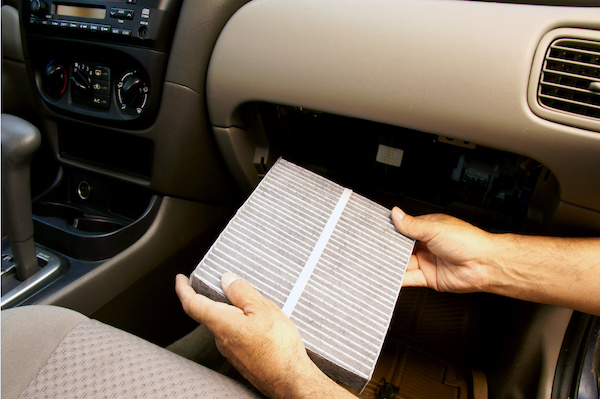
Air cabin filters are designed to filter and remove contaminants such as dust and pollen from the air you breathe inside your car. These components keep a stream of fresh air flowing so that you and your loved ones can breathe easily and travel comfortably. But with time, your vehicle's air cabin filters might be clogged by harmful contaminants, after which they will no longer serve their purpose. Once you begin to notice an unusual and unpleasant odor emanating from your ventilation system, it might be time to replace your air cabin filters. Other signs include: • Excessive noise when your vehicle's HVAC system is running • Reduced airflow in the passenger compartment • An unusual whistling sound emanating from the cabin air ducts • Unpleasant odor in your vehicle cabin So, Why Replace your Cabin Air Filters? Health and Comfort Your vehicle's air cabin filter is the only thing between you and the air flowing inside your car. This means it will tra ... read more
Posted on 6/27/2022
.jpeg)
The power steering light located on the dashboard is immediately identifiable since it looks like an orange, red or yellow steering wheel with an exclamation mark. A lighted EPS communicates the same message in electric power steering setups. Where Is The Power Steering System Warning Light? The light shows something is wrong with the power steering system and that you must look into the problem. The reason for this varies depending on your vehicle's type of power steering system. Why Does The Power Steering Light Come On? The most typical cause of this problem with hydraulic power steering systems is a leak resulting in a low fluid level. A lit EPS light may show if you have an electronic power steering (EPS) system. There are no fluid levels to monitor since EPS systems do not require fluid to offer steering help. Instead, suppose you've recently removed or reconnected the battery of your vehicle or recently had to jump start it, you may now have a battery problem. What ... read more
Posted on 5/26/2022
.jpeg)
The car manual is a handbook with all the information you need to maintain your car. It includes details on regular check-ups, warning signs, and how to avoid potential problems. Take time to read your owner's manual to know what to do when things go awry. If people read their car's owner's manual, they would discover useful tips to keep their vehicle running smoothly. If you have a question about your car, your owner's manual is the place to find the answer. Learn more below. Importance of Reading Your Car's Owner's Manual Your vehicle's owner manual contains vital information about your car. From basic maintenance to troubleshooting, it provides detailed instructions on how to get the most from your vehicle. You should always read your owner's manual before using your vehicle. This way, you'll be able to take advantage of its features and avoid potential problems. In addition to providing basic instructions on how to operate the vehicle, it als ... read more
Posted on 4/28/2022
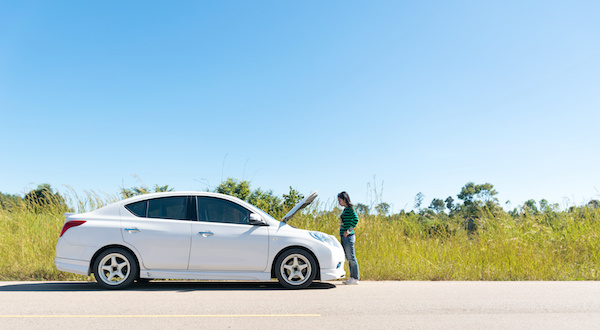
When your vehicle stalls, you may experience it when you start it, when you come to a stop, or when it is idling. In rare instances, your vehicle may also stall when traveling at cruising speeds, which can be particularly problematic. It's important to note that there is no one cause for vehicle stalling. Below are a few reasons why your car is stalling. BATTERY PROBLEM It's no secret that your battery aids your engine is turning over, but its work doesn't end once it's running. It's possible for your vehicle to stall while driving if your battery is starting to wear out, even if your car starts. The battery may not be defective, but its terminals can be corroded or need replacement, causing your car to stall. Corrosion of the terminals on your battery can prevent your automobile from getting enough power because it relies on the battery for its electrical system. SOMETHING IS WRONG WITH YOUR FUEL SYSTEM When a fuel pump stops working well, your engine might be ... read more
Posted on 3/28/2022
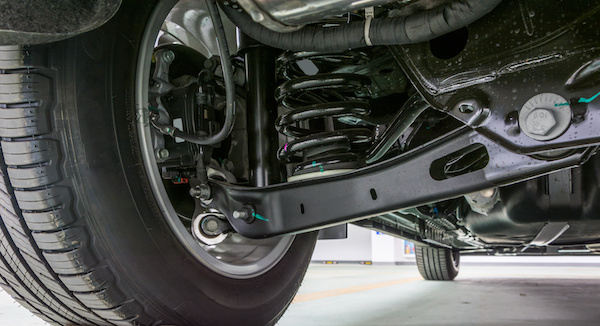
A vehicle's suspension system is essential for maintaining a smooth and comfortable ride. When you start experiencing body aches and discomfort when driving on a bumpy road or rugged off-road trail, the chances are that the shocks and struts have issues and need replacement. The shocks and struts are responsible for absorbing shock from the road, preventing your vehicle from moving erratically while on the road. You won't feel every single bump or unevenness in the pavement this way, and you are able to better control your vehicle overall. Over time, shocks and struts can wear just with regular use of your vehicle. The first telltale sign of back shocks is a leaky or oily looking shock, which means they could be damaged. Driving with bad shocks and struts doesn't just affect your ride quality - it can also start to cause damage to your tires, wearing them down unevenly. Other suspension components can also be affected. That is why it is important to pay attention to how yo ... read more
Posted on 2/28/2022
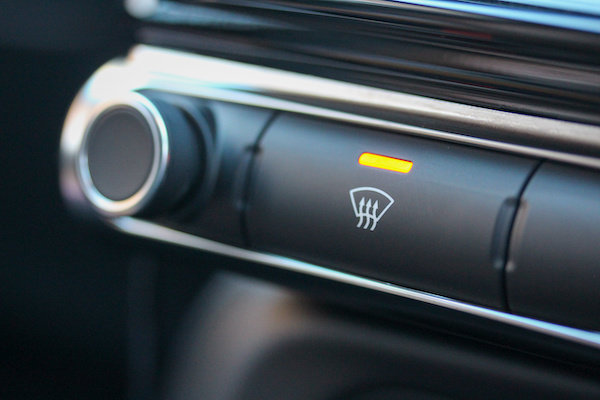
It's easy to run behind in the mornings to only rush out to a frosty windshield. Not only is a blurry windshield a nuisance, but it is very dangerous to drive when your view of the road is obstructed. Whether your windshield freezes or forms droplets, both are potential hazards and require a little more work and time before you can start driving. How to Defog Windows Step 1: Turn on the Heat The first thing you should do to combat foggy windshields this winter is by turning on the defrosters. This feature is a must-have this time of the year, so please ensure it works at the start of the cold season. Start by cranking the heat and defrosters up high. Doing this will eliminate any moisture from the air inside your car. Step 2: Turn on the A/C Button It might seem counterintuitive, but the cold air will help dry the air inside the car. As the air gets drawn into the HVAC system, it will trap some of the moisture. Step 3: Turn off the recirculation feature A ... read more
Posted on 1/24/2022

There can be a lot of anxiety when it comes to driving in the snow. While some snowstorms are anticipated, some can be unforeseen. The best thing you can do is stay prepared at all times. Here are some of our top tips on how to take on the tread through the snow with ease. Reduce Speed During inclement weather, the roads will be slippier. As a result, you should always lower your speed in poor weather conditions to help maintain a better grip. If you drive too fast, you may lose control of your vehicle, hurt others and yourself, or even get pulled over. Inspect Your Tires Your tires are especially important when it comes to driving in the winter. An experienced technician can ensure that your tire specifications are correct, test your tire pressure, and more to ensure they get the proper traction. Headlight Maintenance With the sun setting a lot earlier now than it did in the summer, you will need your lights to work this winter. Low beams may be a better choice during heavy snow ... read more
Posted on 12/22/2021
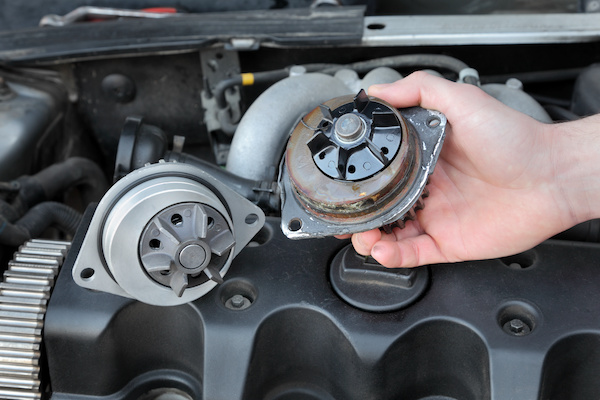
A water pump in the car actually helps keep your vehicle's engine cool while it's being driven. While it's not required to be replaced immediately, you also don't want to wait too long. So it's important that you look out for the following symptoms below that signal a failing water pump in your vehicle. What are some symptoms of a failing water pump? Knowing what to look for with a failing water pump is critical. Look for the following signs that you'll need to get the water pump replaced as soon as possible. Coolant Leaks This is one of the most noticeable signs that the water pump may or may not be failing. It usually leaves an orange or green puddle on the ground. To confirm that the water pump is failing, you can also check the oil with the oil dipstick. If it's frothy or thick chocolate, assume you have a water pump leak and get it looked at. Engine Overheats If your engine ... read more
Posted on 11/29/2021

Many of us tend to stay inside when temperatures drop, but the truth is there's a bunch of entertaining winter activities (both outdoors and indoors). While you may think it's too early to think about winter activities, the first snowfall is expected to take place as early as December in MD. Here are some fun winter activities to do this year! Build a snowman This is a classic activity for you and your family. All you have to do is gather a few things from around the house (a hat, scarf, and carrot), and you've got all you need to build a snowman! It's a fun way for your children to get creative and have a photo-op after! Have a snowball fight A snowball fight is a perfect activity to get the whole family moving, and who doesn't love a friendly competition? It can be as simple as throwing a few snowballs back and forth or involving forts, rules, and strategy. Go tubing or sledding You should take advantage of any nearby hills and head on over with your s ... read more